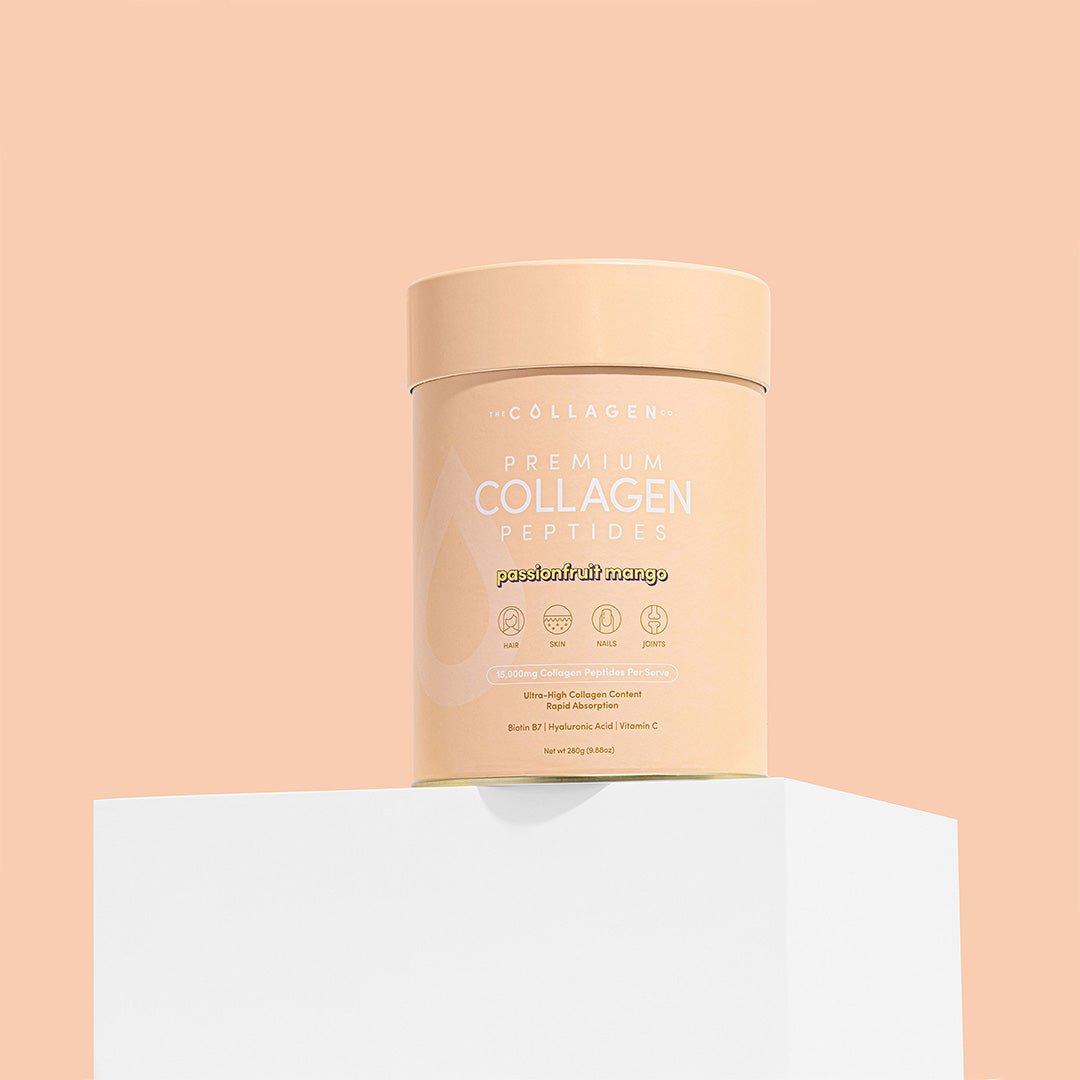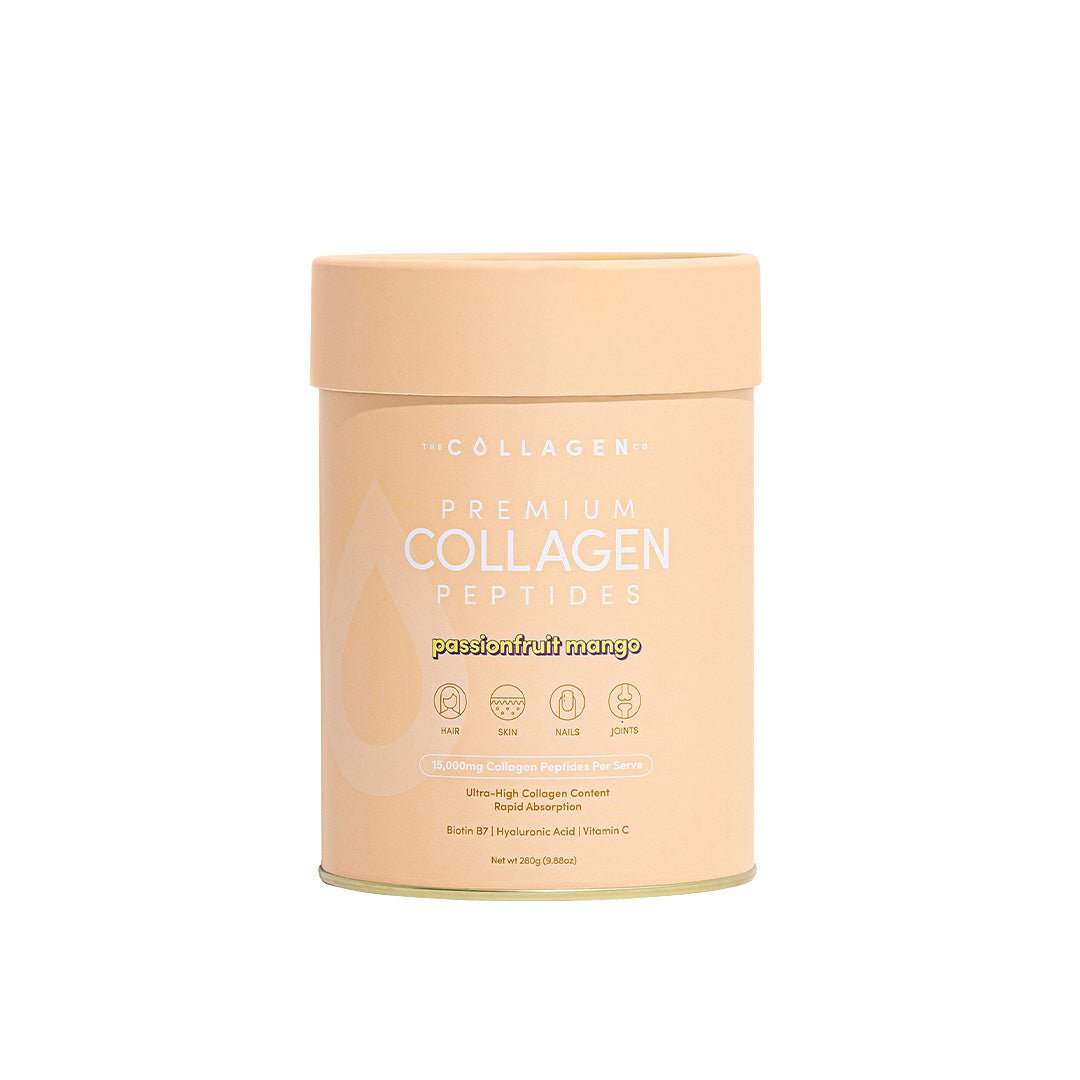5 Ways to Stimulate More Collagen in Your Skin
Posted 26th July 2022

As you get older, your collagen levels will inevitably decline starting in your 20s, then continuing at a worrying rate of 1% yearly. The result? Fine lines. Wrinkles. And, not to mention saggy skin that flops about sadly despite your best attempts to make it stay in its rightful place. Ah, no wonder we're all desperately trying to boost our body's natural collagen production.
How, though? Before diving into that, let’s first acknowledge the trickiness of boosting the body’s natural collagen levels.
Why can it be hard to stimulate collagen naturally in your skin?
Although the inescapable aging process causes you to lose roughly 1% of your collagen levels yearly, you'll often find that your real loss rate is much higher than that. Why?
A large part of it comes down to city living, which significantly increases exposure to external causes of free radicals, like UV rays, artificial blue light exposure (all that screen time!), and air pollution.
Free radicals are unstable molecules on the hunt for extra electrons.
And when it comes to who they get those electrons from? Well, they're undiscriminating—meaning, yes, your healthy collagen-producing cells (fibroblasts) often play the role of an unsuspecting, powerless victim.
Essentially, free radicals damage the DNA of your skin cells, sparking a devastating, inflammatory ripple effect that causes widespread collagen breakdown.
5 ways to stimulate collagen in your skin
You can’t stop time. Also, unless you’re willing to uproot your life to the countryside, neither can you eliminate free radicals. But don’t despair just yet because you could still stimulate more collagen in your skin by:
- Providing your body with the nutrients it needs to make collagen, and
- Lowering your body’s inflammatory responses
#1: Focus on the amino acids glycine and proline
By combining glycine and proline, your body makes pro-collagen, a precursor from which all collagen starts. Thus, ensuring you consume foods rich in these two amino acids may help stimulate your body's natural collagen production. Foods you could consider adding to your plate include:
- Proline-rich sources: Egg whites, dairy, mushrooms, asparagus, wheat germ
- Glycine-rich sources: Chicken, pork, peanuts, salmon, turkey, seeds
#2: Eat a diet rich in antioxidants
In every good story, a hero will thwart the villain's plan. And who's the hero here?
Answer: antioxidants. That’s because these "generous" molecules can donate free electrons to free radicals without becoming unstable, neutralizing the latter, promptly halting their destructive path.
But how do you grab ahold of antioxidants?
Well, eating them is arguably the most straightforward way; you could do so by eating a rainbow of whole fruits, vegetables, legumes, herbs, nuts, and seeds—the more colorful your diet, the better.
One antioxidant you want to keep an eye out for is vitamin C. In addition to fending off free radicals, this nutrient is a necessary cofactor in collagen synthesis. In other words, inadequate vitamin C consumption may translate to accelerated collagen breakdown in the skin (oof).
#3: Try red light therapy
For the uninitiated, red light therapy is a treatment that uses LED lights (or lasers) to expose the body to red light, the longest wavelength of visible light on the visible light spectrum. Excitingly, research suggests that exposing your skin to red light could increase its collagen content by:
- Reducing inflammation, which minimizes free radical damage
- Increasing cellular energy, so your fibroblasts have more energy to produce collagen
Unconvinced? Look at this 2014 study published in Photomedicine and Laser Surgery. Here, participants who'd undergone full-body exposure to red light for 30 twice-weekly sessions experienced increased dermal collagen density. They also noticed visible improvements in wrinkles and skin roughness.
#4: Practice healthy lifestyle habits to keep inflammation low
Since reducing inflammation minimizes free radical damage, doing the following may also help increase collagen density in your skin:
- Limit refined carbohydrate intake: Research shows a strong association between a high intake of added sugar and refined carbohydrates and inflammation.
- Consume alcohol mindfully: Drinking alcohol in excess (more than one for women and two drinks for men) has been shown to trigger inflammation across the whole body, including the gut, liver, and skin.
- Get enough good quality sleep: Sleep deprivation is associated with an increase in several inflammatory molecules, like cytokines, interleukin-6, and C-reactive protein. So strive to get at least seven hours of sleep nightly.
#5: Take a collagen supplement
Finally, consider supplementing with collagen peptides.
Beyond simply providing your body with the amino acids it needs to produce collagen, these small peptide chains have also been shown to exert biological activity (i.e., they’re bioactive)—leading to unique anti-aging benefits you wouldn't have seen from just supplementing with other protein types.
More specifically, hydrolyzed collagen peptides have been shown to stimulate fibroblast activity, significantly ramping up collagen production in the skin.
According to a 2019 systematic review of available RCT trials on the efficacy of collagen supplementation on skin health, researchers concluded that collagen peptides could support dermal collagen density and skin elasticity.
By the way: find out how long collagen supplements take to work here.
Takeaway
With the natural aging process and environmental pollutants working against you, stimulating more collagen in your skin can often feel like an uphill battle.
But that doesn’t mean you’re completely powerless.
By actively taking steps to lower inflammation and provide your body with the building blocks of collagen, you’re giving yourself the best fighting chance against fine lines, wrinkles, and saggy skin.
Psst: looking for a high-quality collagen supplement? You’ll find premium collagen powder right here on The Collagen Co.









































